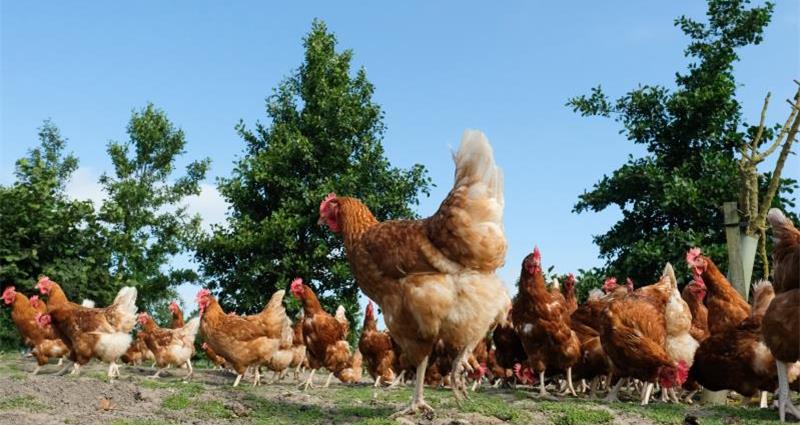From Monday 2 May, poultry and other captive birds no longer need to be housed, unless they are in a Protection Zone, and will be allowed to be kept outside.
While the risk of bird flu has been reduced to ‘low’ for premises with good biosecurity and ‘medium’ where biosecurity is suboptimal, the enhanced biosecurity requirements that were brought in as part of the Avian Influenza Prevention Zone (AIPZ) will remain in force as infection may still be circulating in the environment for several more weeks. All poultry gatherings will remain banned.
Advice for poultry keepers
Poultry keepers are advised to prepare their outside areas for the release of their birds, including cleansing and disinfection of hard surfaces, fencing off ponds or standing water, and reintroduction of wild bird deterrents.
You can read Defra's guidance on preparing to let birds outside here: Gov.uk | How to prepare for when your free range birds can be let outside again
Chief Vets statement
In a joint statement, the UK's four Chief Veterinary Officers said:
“Whilst the lifting of the mandatory housing measures will be welcome news to bird keepers, scrupulous biosecurity remains the most critical form of defence to help keep your birds safe.
“It is thanks to the hard work of all bird keepers and vets, who have played their part in keeping flocks safe this winter, that we are in a position to take this action. However, the recent cases of avian influenza show that it’s more important than ever for bird keepers to remain vigilant for signs of disease and maintain stringent standards of biosecurity.”
NFU Cymru comment
NFU Cymru Poultry representative Richard Williams said: “This week’s announcement of the lifting of housing restrictions has come as a great relief to poultry farmers across the UK, particularly here in Wales where such a large proportion of our eggs are from free-range farms.
“The sector has worked incredibly hard to minimise the threat of AI over a number of months, but it is clear that we all need to remain vigilant and continue practising enhanced biosecurity measures to ensure that the risk level does not increase once again. It is vital that all poultry keepers, whether that’s our members with large numbers of birds or more modest backyard keepers, continue to follow the government advice and protect the health of the national flock.
“NFU Cymru is working with partners across the industry to look at future solutions as to how we limit the impact of AI on the sector, given that it has become a frequent issue over the late autumn and winter months.
“While this week’s announcement is of course welcome news, it is just one of several challenges currently facing our poultry farmers, not least the rising feed, energy, transport and labour costs that are continuing to have a very real impact on the sector.”
Be vigilant
Poultry and captive bird keepers are advised to be vigilant for any signs of disease in their birds and any wild birds, and seek prompt advice from their vet if they have any concerns.
Public health advice remains that the risk to human health from the virus is very low and food standards bodies advise that avian influenzas pose a very low food safety risk for UK consumers. There is no impact on the consumption of properly cooked poultry products including eggs.
If disease is suspected
Poultry and captive bird keepers and members of the public should report dead wild birds to the Defra helpline on 03459 33 55 77.
Bird keepers should report suspicion of disease in Wales to 0300 303 8268.
